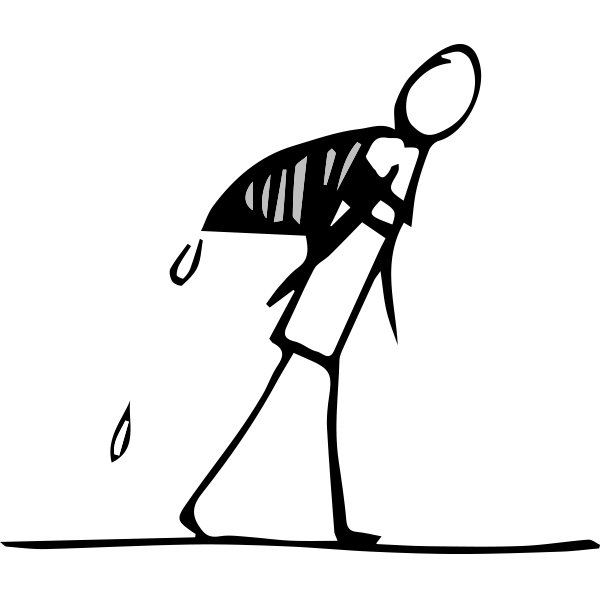I just returned from a three-week trip to Chicago where I was a scholar-in-residence at Skokie Public Library. I took the Empire Builder out and back, a three-day train ride each way. I brought my bike and cycled over 500 miles getting to and from Skokie each day. In addition to getting very tan and very opinionated about Chicago's car culture and bike infrastructure, I experienced an overwhelming sense of rightness and belonging. TL;DR I am filled to the brim.
This trip was a windfall of riches in experience. Each interaction taught me something. Skokie librarians are downright amazing people. The library itself is full of heart, every ounce of it feels activated. Together we imagined and practiced what a contemplative culture might look like. We meet, talked, and experimented. I am still feeling out the boundaries of my gratitude. They are far and wide.
One interaction, in particular, a conversation with a retired Chicago cop who attended a program I ran on a Saturday morning is the inspiration for this post. She taught me many things that morning, and one of them was helping me realize the power of photography to reflect on and appreciate your life. These photos give in many ways. The process of taking them allowed me to slow down and appreciate the moment I captured. The revisiting and deciding which to share allowed me to remember and appreciate the experiences again and also in new ways. Captioning and sharing them with you connects us across time and space. And in the future, I will be glad to revisit these memories and experience all the emotions they rush in.
THE TRAIN
Montana Sky Country
I'd never gone on a multi-day train ride before and I loved it. It's a humane way to travel, one that nurtures a culture of trust. You're trusted as you board. There's no security theater. You trust others to not take your things when they're unattended. You trust each other to care for the common spaces (bathrooms, trash cans, aisles, etc.) while you're traveling together.
The sun rising near Devil's Lake, North Dakota.
You're trusted to be nice to each other. During meals, you're seated with whoever came right before or after you. I met such interesting people, all of whom were very different from me. I found common ground with each of them and will remember their faces and our conversations for a long time.
The sun setting in Whitefish, Montana
It's truly amazing (and also kind of wrong) that we can travel so far so quickly on planes. A train ride gives you a sense of the distance you're traveling. The time zone changes are gentle. You experience the gorgeous and the mundane of trackside towns and forests.
Glacier National Park
THE BICYCLE
There is probably nothing more evocative of my time on the trip than this photo.
In exchange for pet sitting a very sweet 19-year-old cat for a week, I had accommodations in Chicago, right downtown in Printer's Row, for my entire residency. This choice afforded me the opportunity to build a true friendship with the colleague that offered her home to me. I also made a couple friends in their tight-knit community.
Pausing at one of my favorite spots along the lake shore. A bank of flowering Black-eyed Susans.
It also meant that I biked 20-miles one-way to and from Skokie each day. It was an interesting choice to make, but looking back on it, my time in the saddle was such a rich and alive part of the experience. I wouldn't have wanted it another way.
A perfect day, especially appreciated after a string of very wet rides.
My first ride was during a thunderstorm that began at about 5:30 in the morning. It was torrential and I was soaked through after riding two solid hours in it. After that, I thought it could only get better but turns out another storm awaited the very next day. I experienced so many challenges along the lake front and the streets I found to Skokie (Ardmore, Kenmore, Granville, Lakewood, Pratt, Kedzie, McCormick, and Main). Menacing cars, impatient cyclists, oblivious rollerbladers. It was truly difficult each day in its own way. But, like my commute here at home, which is also two hours and involves 10 miles and a ferry ride, there's so much to be gained by accepting the challenges presented. It is a different experience to ride in the rain when you aren't upset that it's raining. In many ways, my ride afforded countless opportunities to practice acceptance.
THE LIBRARY
From the first minute to the very last of my time in Skokie, I felt something I rarely experience: belonging. Over the course of thirteen days, I participated in 51 engagements — "Mindful Meet-ups" with staff, departmental meetings, walk & talks with individuals, pop-up programming for the public, and more. I directly interacted with lots of folks — from over 70 Skokie staff members to nearly 20 leaders in other area libraries to ~40 members of the public. It was a very full 13 days.
A goodbye gathering on my last day.
I left with more questions than I arrived with, which is just what a PhD student needs. Together we explored contemplative culture, programming, and spaces. There's so much to play with and learn about what's possible.
Drawing "internal weather reports" with Skokie patrons. (Photo by Max Herman)
I think more than any other question, though, the one that's most on my heart and mind at the moment is about how contemplative practice creates and sustains community. I am sure that wherever my work is leading, it will involve understanding how we bring our whole selves to everything we do, and how our whole selves are incomplete without understanding who were are together.
A post-it note left by a member of the public. I couldn't have said it better myself.
So much gratitude for this experience. So much more to come.

















